Impatiens Necrotic Spotted Wilt Virus (INSV)
Pathogen: Impatiens Necrotic Spotted Wilt Virus (INSV)
Hosts Include: Ajuga, Aster, Campanula, Delphinium, Dianthus, Digitalis, Echinacea, Gaillardia, Gaura, Heuchera, Hosta, Leucanthemum, Lobelia, Lysimachia, Monarda, Oenothera, Penstemon, Phlox, Platycodon, Primula, Salvia, Scabiosa, Sedum, Tradescantia, and Veronica
Symptoms: Symptoms vary depending on the host but may include necrosis and spotting, ringspots, mosaic, mottling, distortion of new growth, stunting and plant death.
Spread: INSV is spread by western flower thrips. Once a thrips acquires INSV it can vector the virus to susceptible hosts it feeds on throughout its lifetime. The pathogen can also be spread by sap transmission. Plants can be infected and show no symptoms, the virus can be spread from these plants. INSV can overwinter in the roots of infected plants.
Management: Scout incoming plant material for signs of disease and for thrips. Susceptible plants should be scouted regularly for thrips (see thrips section for more information). Avoid intermixing of more and less susceptible crops within the same greenhouse, also avoid intermixing of seed and cutting-propagated crops. Eliminate weeds from the propagation area. Immediately remove symptomatic plants from the growing area. Diagnostic testing can be done by a plant diagnostic lab or at the growing facility with testing strips available from plant diagnostic companies.
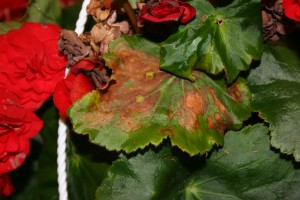
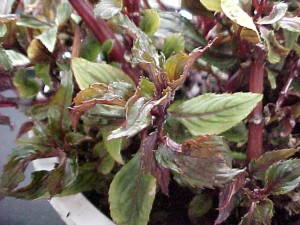
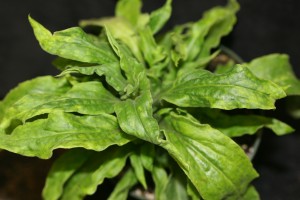
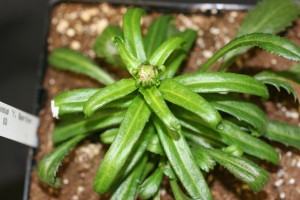
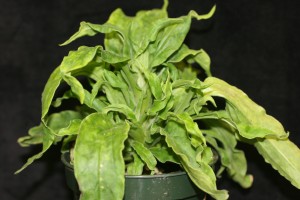



 Print
Print Email
Email




